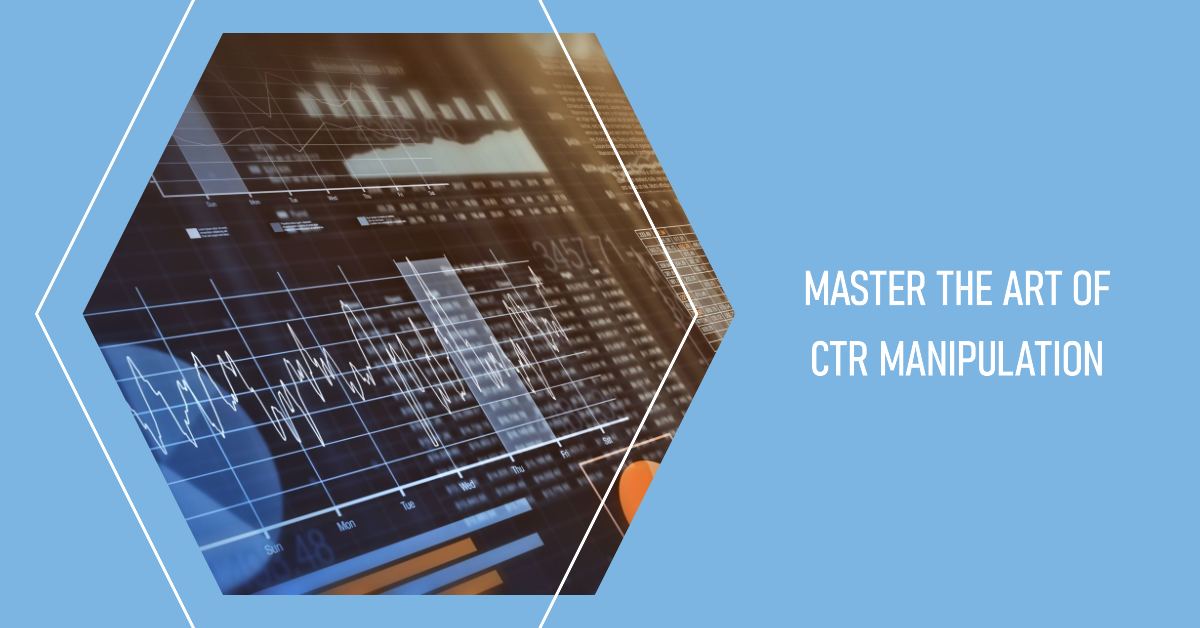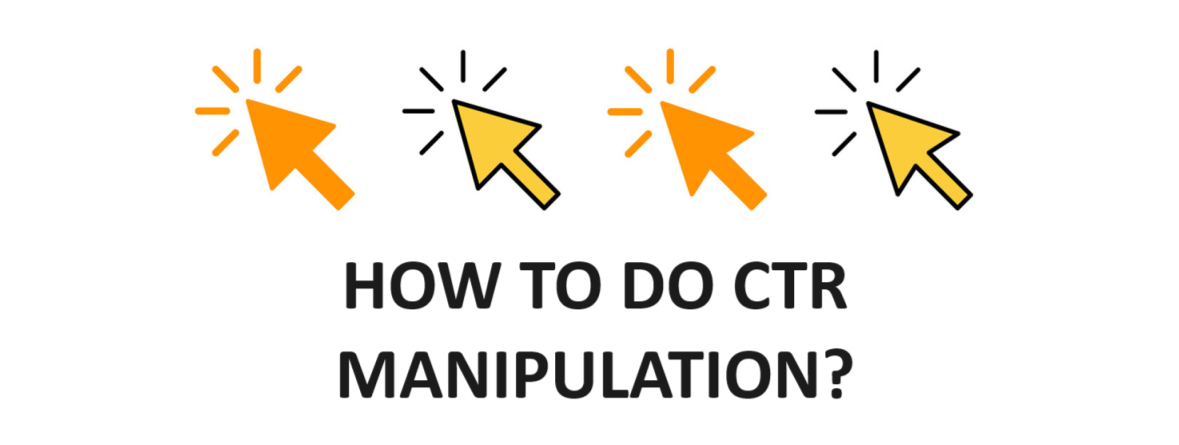Checking Out the Relationship In Between CTR Manipulation Providers and User Habits
In the world of digital advertising and marketing, the influence of click-through rate (CTR) adjustment services on individual actions continues to be a complicated and fascinating subject. As on the internet systems increasingly count on CTR metrics to gauge the success of content, products, and services, recognizing just how these manipulated rates effect customer interaction and decision-making procedures is extremely important. The interaction between CTR control and user behavior raises concerns about authenticity, reliability, and the ethical ramifications of such techniques. By dissecting the elaborate connection in between CTR adjustment solutions and customer actions, appealing understandings arise that might improve our understanding of electronic advertising and marketing approaches and their results on customers.
Impact of CTR Manipulation on Actions
Examining the influence of Click-Through Rate (CTR) adjustment on customer actions discloses important insights right into the dynamics of online engagement. CTR adjustment includes synthetically inflating the variety of clicks on a particular web link or ad to deceive users and search engines. This technique can result in a distorted assumption of a web page's popularity or importance, eventually impacting customer habits.

Furthermore, CTR control can alter the data utilized by formulas to personalize individual experiences. This can cause users being served material that does not straighten with their preferences or rate of interests, inevitably leading to a decline in customer satisfaction and interaction. Recognizing the impact of CTR manipulation on individual actions is essential for maintaining transparency and rely on on-line communications.
User Engagement With Controlled CTR
Individual involvement with adjusted CTR information often leads to manipulated assumptions of on-line material popularity and relevance. When users communicate with material based on synthetically inflated Click-Through Rates (CTR), they may believe that certain information, products, or services are more popular or trustworthy than they actually are. This can result in users choosing based on deceptive information, bring about possibly negative end results.
Involvement metrics like sort, shares, comments, and time invested in a website are typically influenced by CTR manipulation. Users might be extra likely to involve with material that shows up to have greater engagement prices, additionally continuing the cycle of skewed assumptions. Because of this, content developers and advertisers might prioritize creating material that generates high CTR as opposed to concentrating on producing genuinely beneficial and pertinent material.

Psychological Effects of CTR Manipulation

Moreover, the emotional results of CTR control can also manifest in transformed decision-making processes. Users might be a lot more inclined to click material entirely based upon its perceived popularity, rather than its actual worth or relevance to their demands. This behavioral change can lead to a superficial involvement with on the internet content, where customers may overlook high-quality however less preferred offerings for those with unnaturally improved CTRs.
Fundamentally, the emotional ramifications of CTR adjustment highlight the significance of keeping transparency and credibility in online communications to foster real user involvement and trust.
Moral Considerations in CTR Control
Considering the honest effects of controling click-through prices (CTR) in online platforms is important for keeping integrity and trust within the digital ecological community. CTR manipulation increases problems about tricking customers, distorting data analytics, and jeopardizing the reliability of on the internet web content. One major ethical factor to consider is the possible effect on individual freedom and decision-making. By unnaturally inflating CTR, individuals might be misdirected into clicking on links or ads they would not have chosen otherwise, causing an insincere online experience. In addition, CTR manipulation can skew the performance metrics that companies rely upon to make calculated choices, inevitably influencing market competitors and customer trust fund.
One more ethical aspect to ponder is the justness of controling CTR to acquire an unfair Read More Here benefit over rivals. Taking part in such practices not just breaches principles of fair game yet likewise undermines the trust fund that individuals place in online systems. It is vital for companies and electronic marketers to promote honest standards in their techniques to guarantee openness, integrity, and long-lasting sustainability in the on-line atmosphere.
Implications for Digital Advertising
CTR control can lead to manipulated information analytics, misinforming marketers into believing that their campaigns are performing better than they actually are. When users realize that CTRs have been manipulated, it can erode trust in the brand, leading to lasting unfavorable effects for consumer commitment and brand name track record.
Furthermore, the usage of CTR adjustment solutions can produce an unjust competitive landscape, where companies that take part in such my latest blog post techniques get a fabricated benefit over those that adhere to honest marketing standards. This can suppress advancement and imagination in digital marketing, as success comes to be even more regarding manipulation methods than supplying authentic value to customers. Eventually, the ramifications of CTR manipulation for electronic advertising extend past temporary gains, impacting the general sustainability and credibility of marketing initiatives in the digital world.
Verdict
Finally, the relationship in between CTR manipulation solutions and individual actions is complicated and multifaceted. The influence of CTR manipulation on actions, individual involvement with controlled CTR, psychological impacts, ethical factors to consider, and implications for electronic marketing all contribute fit this connection. Understanding these characteristics is crucial for marketers and researchers alike in order to browse the ethical ramifications and optimize the effectiveness of their digital advertising and marketing approaches.